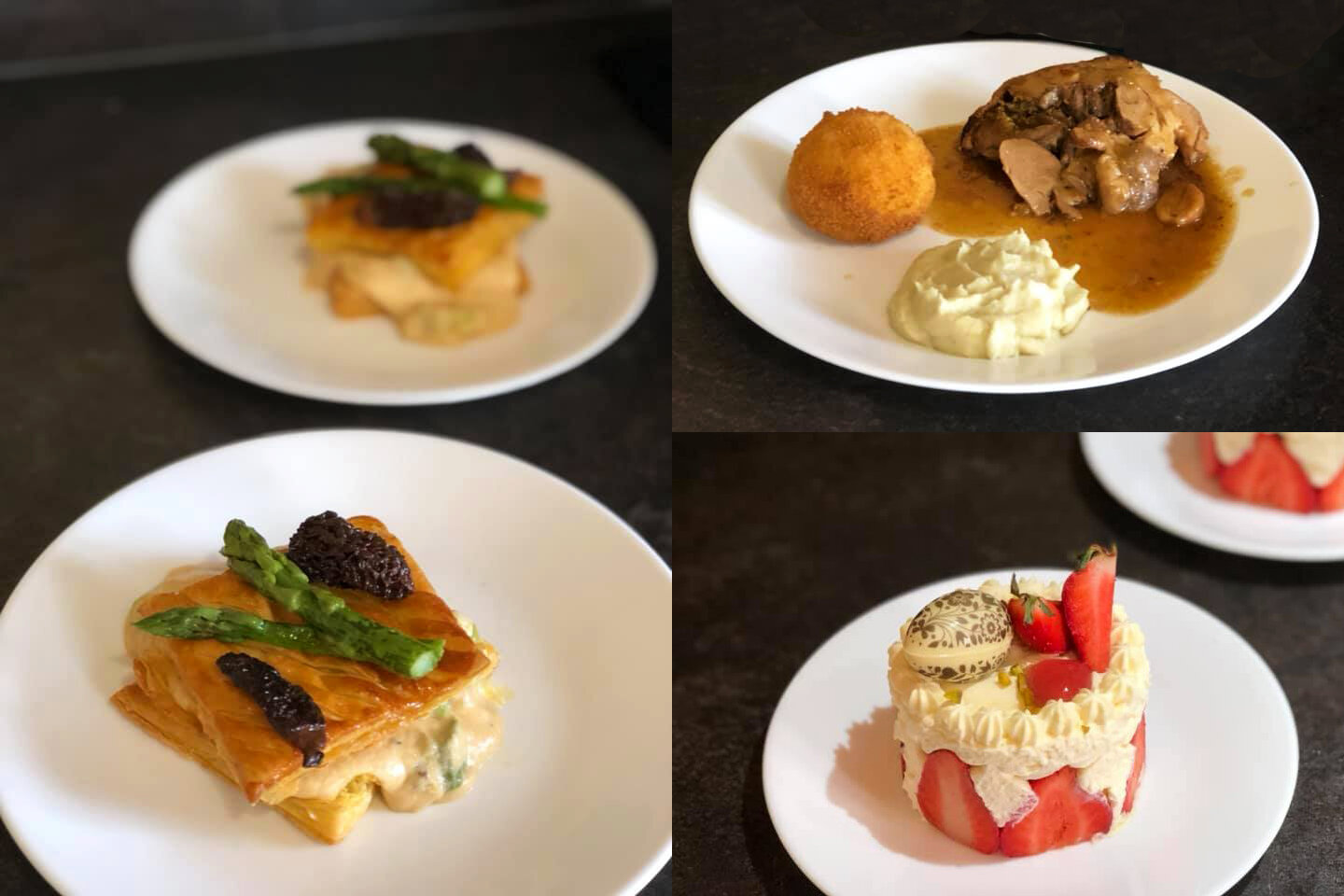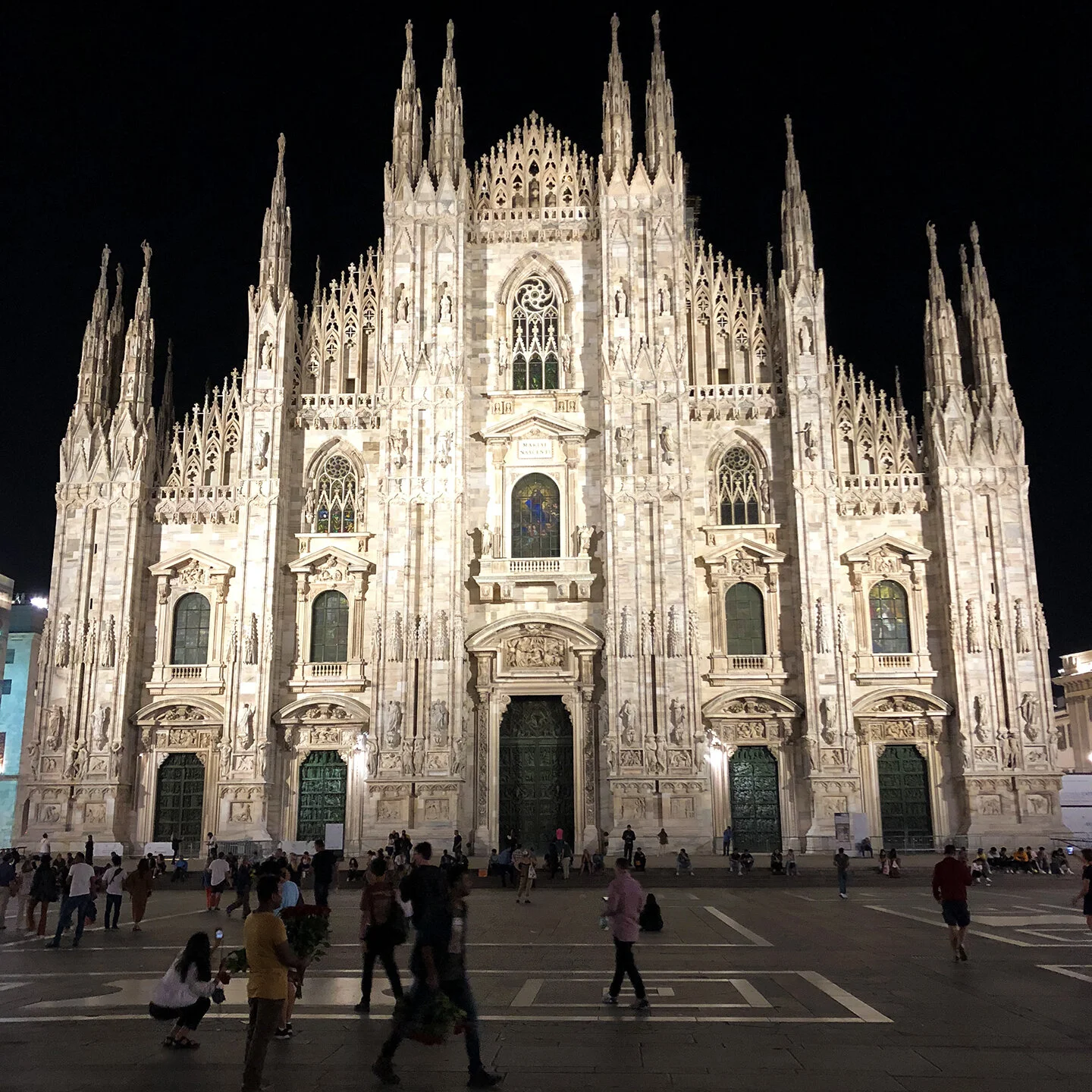April 6, 2020
The plane! The plane! For a minute, I feel like Tattoo in Fantasy Island (Youtube it if you’re too young to remember that TV show.) For over three weeks, I haven’t seen or heard a commercial airplane above my head; no contrail scratching our deep blue skies. Even the Rafales, those loud French fighter planes that zip by at low altitude above our woods toward their Toulouse base, have been missing in action.
So, the plane. Ironically, it’s parked in front of the old Payrignac train station that was decommissioned eighty years ago. It’s missing its wing. The white paint is flaking off. The cockpit and the tail are half-covered with pale green lichen. And it’s made of wood, like one of the carvings my grandfather made in the Seventies. It might even be that old.
Perched on its metal post, the plane is grounded, like all its aluminum friends, like all of us. I always had at least one active flight reservation on the books but 2020 is shaping up differently. Airlines have reduced their flights by 90%. Some airports, like Orly, are completely shut down. Many countries, including the two that matter the most to me, have made their borders almost impenetrable. We are expected to stay home. Eventually, we may be allowed to circulate within our country but international travel will have to wait a few months, or perhaps a year. That makes me antsy. When my father was ill, it gave me peace of mind to know that I could jump into a plane at a moment’s notice and be there for him. For those of us who have loved ones in other countries, the thought of not being able to travel at will is almost unbearable.
In Louis XVI’s diary, nothing happened on July 14, 1789. The journal is kept at the Archives Nationales.
April 7, 2020
Is it morning… is it Tuesday… or July… is it still 2020… where am I? Before the confinement, our outings and activities set the tempo of the day. On Monday, our mailman would bring the weekly food ads; now, Jérémie does his route only three times a week and the ads are delivered to our phones and computers. I used to drive Mom to the salle des fêtes on Wednesday so she could spend the afternoon with friends and play belote; of course, all group activities have been suspended indefinitely. On Saturday, a small group of French natives and local Brits would get together at a café for an informal chat and everybody would practice their language skills; the cafés have shut down, we all stay home, and I don’t get to “correct” anybody…
Rituals provide markers and keep us grounded. For the fourth week in a row, time seems to be standing still. Our lives are suspended and feel somewhat empty. “Rien” as Louis XVI wrote in his diary on the date of July 14, 1789. One might think that he, too, was somewhat “confined” in Versailles, without knowledge of the turmoil that was brewing in Paris that day. It turns out that he used his journal to record the result of the royal hunt: on July 14, the king’s party was unsuccessful and he didn’t bring back any game to the royal kitchen. Rien. Lucky Louis: at least, he got to leave the palace with his horse, his dogs, and his entourage; without a permission slip.
Even if nothing happened in my life today, I am very aware that my small universe does not reflect what is going on in the rest of the world: the morbid tallies in New York, Italy, Spain, and France continue to increase. We had been spared so far but, today, the regional newspaper La Dépèche du Midi reported the first Covid-19 fatality in the Lot. Ce n’est pas “rien”.
Vocabulary
La salle des fêtes: large activity room owned by the city
La belote: French card game
Rien: nothing
Ce n’est pas rien: it’s not nothing
Farming life continues…
April 10, 2020
I don’t claim to be an avid gardener but, as a dedicated cook, I like to have fresh culinary herbs on hand. Last year, I started a small jardin in front of my kitchen. It will never be a full-fledge potager like my grandfather’s: I will only focus on herbs and vegetables that I use often or have a hard time finding here. The thyme, rosemary, and chives are all doing well; my tarragon is a bit timid and could probably use another companion plant. Jardinerie-pépiniériste Gamm’Vert is now open in the morning and I picked some annuals: flat-leaf parsley and basil; oregano was not in stock yet.
Luckily, I was able to buy a few seed packets while in Eureka last month. I’ll try my hand at growing some cilantro, bok choi, baby watermelon, jalapeno peppers, and sweet corn. Although corn is a traditional crop in our area, it is intended to feed les bêtes. Most French people turn up their noses at corn. I guess I’m aiming to have a multicultural potager.
My garden is dwarfed by the real world of farming: a mere 200 yards away, large fields have been plowed and prepared to welcome new plants and seeds. The dirt looks rich and fertile. The automatic sprinkler rhythmically oscillates and shoots water in the air and on my windshield as I drive by. For most of us, food magically appears at the stores or in our plates; we give little thought to what it takes to feed a whole country. Just like garbage collectors, cleaning ladies, or delivery drivers, farmers are finally getting some well-deserved appreciation. Border closings are preventing migrant workers from Spain and other European countries to enter our country and serve as seasonal farmhands but I heard that 240,000 French men and women have volunteered to work in the fields instead of collecting unemployment. It’s quite a relief to know that my survival will not be completely dependent on my green thumb!
Vocabulary
Le jardin: garden
Le potager: vegetable garden
La jardinerie: garden center
Le pépiniériste: nursery
Easter dinner done right!
April 12, 2020
I’m a little too old to forage for Easter eggs. I had picked up a few bags of treats to have at the house: is one ever too old to enjoy chocolate? I knew we would not have to share them with anybody this year: an unforeseen perk of social distancing… With a couple of exceptions, I always spent Easter break at the farm when I was growing up. My cousins and I would accompany Grandma to Mass, giving Grandpa a generous hour to hide the coveted candies in the boxwood hedge and the vegetable garden. At the end of the service, anxious kids would quickly hike back home. While Grandma put the finishing touches to lunch, we’d dive into the bushes and lift lettuce leaves in search of hidden treasures.
Our take-out Easter meal from Delicatessens was superb. Detailed instructions were included to warm up the different elements of each dish. All that was left was assembly and plating, the extent of my chef duties today. I could get used to that kind of take-out: clearly, French restaurants are taking the concept a notch higher than their American counterparts.
The Duomo in Milan, as I saw it in September 2019
This unusual Easter concluded with a bitter-sweet return to Milan, courtesy of Andrea Bocelli’s concert at the Duomo. I couldn’t wait to see the cathedral again, six months after my last stay in Milan. It’s the third-largest church in Europe, more than twice the size of Notre-Dame-de-Paris. It’s a massive building although the spires, statues, and carvings give it a lighter, lacy look. And the marble, that beautiful pink Candoglia marble, is everywhere. As the drone flew over the cathedral, unveiling a skyline dotted with red tile roofs, church towers, and skyscrapers, I could picture myself on the rooftop again, way above the expansive piazza below and the elegant Galleria Vittorio Emanuele II, both teeming with people holding a camera or a gelato, or both. I remember thinking that, no matter the time of day or night, it was impossible to take a good shot of the Duomo without tourists. The contrast between now and then was as stark as Bocelli’s black tuxedo against a white buttress.
Bummed about your canceled travel plans? Dreaming of returning to Paris in a not-so-distant future? Buy my book : each of the 40 vignettes will bring the City of Light into your home. Perfect escapism for these unusual times. Thank you for your support!






